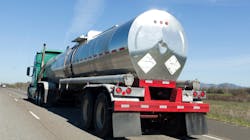Report: Supply chain problems continue to impact chemical manufacturing
Chemical manufacturers report that despite improving conditions, supply chain challenges and freight transportation disruptions continue to be a major problem for the U.S. business of chemistry and the broader economy.
According to the results of a new survey released by the American Chemistry Council (ACC), transportation-related supply chain issues moderated during the second half of 2022 but continue to be worse than conditions prior to the pandemic.
For two years, ACC member companies have reported that supply chain and freight transportation problems are disrupting their U.S. manufacturing operations. In addition to lost manufacturing and customer orders, companies once again reported that higher shipping rates were compounded by costly workarounds, including increased inventories.
Key findings
ACC has surveyed chemical companies four times since late 2021 to better understand the persistent challenges to moving freight in the U.S. by rail, truck, and water. The latest survey focused on business impacts through the second half of 2022 (H2) compared to conditions in the first half of 2022 and compared to conditions prior to the pandemic.
Chemical manufacturers observed some unwinding in supply chain kinks, but they report that conditions remain worse compared to pre-pandemic:
- Nearly all (93%) of companies say supply chain and freight transportation disruptions are impacting their U.S. chemicals manufacturing business.
- Compared to conditions in the first half of 2022, 67% of companies reported supply chain and freight transportation disruptions were generally better in the second half of the year. Compared to conditions prior to the pandemic, however, 83% of companies say they are worse.
- Among respondents, a majority (86%) reported they modified operations because of supply chain issues and/or transportation disruptions and delays in H2.
- In both the first and second half of 2022, about 36% of companies experienced customers canceling orders because they were concerned their order would not arrive or would not arrive on time.
- Supply chain issues and transportation disruptions continue to push up transportation costs. More than half (62%) of chemical manufacturers saw costs rise over H2.
Policymakers must act
The latest survey findings provide further evidence that the problems within the U.S. transportation supply chain are entrenched and that companies believe that further action by policymakers on solutions would help. Regarding specific policy reforms, the survey found:
- Most companies said that standardized first mile/last mile service reporting by railroads (73%) and access to reciprocal switching (77%) would help mitigate freight rail problems.
- Many companies (75%) also said that increasing gross vehicle weight limits for interstate highways would help alleviate trucking capacity constraints.
“Specifically, ACC is calling on the Surface Transportation Board to increase competition in the rail industry through reciprocal switching and to hold railroads accountable for service failures by establishing minimum service standards,” the association said in a news release. “Furthermore, we urge Congress to pass the bipartisan Safer Highways and Increased Performance for Interstate Trucking (SHIP IT) Act, which among other things will improve truck capacity by increasing the Gross Vehicle Weight (GVW).”
